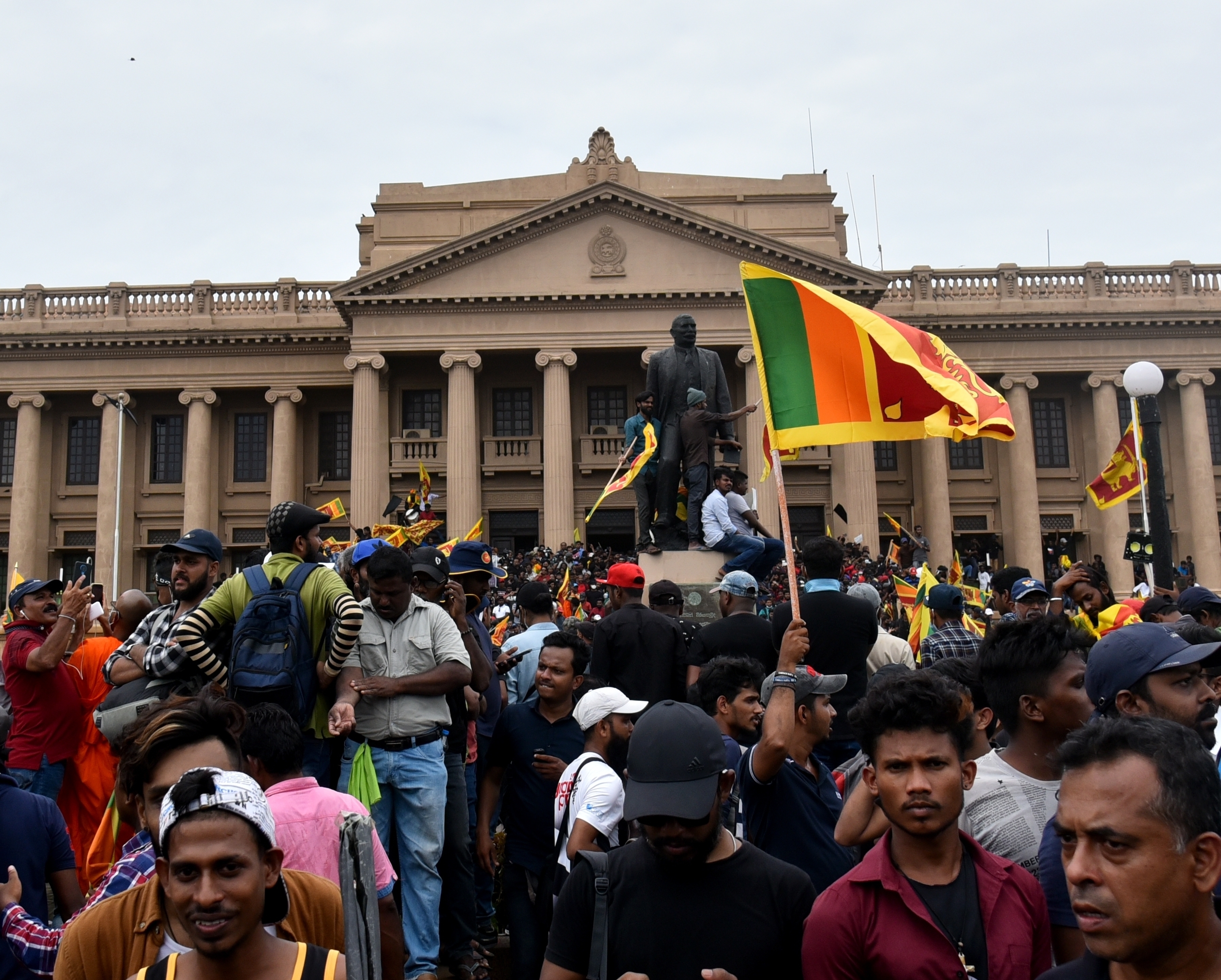
This op-ed originally appeared in Newsweek.
Hundreds of Sri Lankan protestors recently took to the streets, frustrated with the South Asian country's worst economic crisis in seven decades.
Sri Lanka's crisis is no mere financial downturn, like Americans are experiencing now. Our economic system is literally collapsing, with millions of people in desperate need of humanitarian aid. Ten-hour blackouts have become part of daily life in Sri Lanka. Food, water, and other basic necessities are not guaranteed. More than 6 million Sri Lankans are food insecure. Inflation is 66 percent year over year (as of October), child malnutrition is skyrocketing. Parents cannot afford meat, milk, or eggs, forcing themselves into difficult sacrifices.
As a resident of Sri Lanka's capital, Colombo, it is heartbreaking to see my countrymen suffer to such a degree. Even worse, there is no end in sight to their suffering, with the economic crisis expected to deepen in the coming months.
Worse yet, the Sri Lankan economic crisis was predictable. My organization, the independent policy think tank Advocata Institute, not only predicted our bleak scenario, but also spent years strategically preparing to soften the blow and get Sri Lanka back on track over the next decade.
In 2019, a new nationalist government came to power, subsequently fomenting economic divisions and erring in policy strategy, announcing such disastrous priorities as "food self-sufficiency" (among others). When the COVID-19 pandemic hit, Sri Lankan policymakers assumed the coronavirus was solely to blame for the country's economic problems. But they were never short-term; to the contrary, the disruptions of the pandemic only exposed the long-term errors of the nation's expansion of the public sector, its debt obligations, and a deepened budgetary hole. Earlier this year, Sri Lanka predictably defaulted on its debt for the first time in history, no longer able to cover the costs of Big Government.
The numbers are jarring. Sri Lanka's labor force totals roughly 8 million workers. Over 1.5 million (almost 20 percent) of them are public-sector employees. The size of the public sector has doubled over the last 15 years alone, coming out to one public servant for every 14 Sri Lankan citizens. And the efficiency of government workers is historically low, especially when compared to their counterparts in other South Asian countries.
Those numbers don't add up to fiscal solvency. In 2021, Sri Lanka's government paid 86 cents as salaries and pension payments to public servants from every rupee earned as tax revenue. Similarly, Sri Lanka has a total of nearly 530 state-owned enterprises, which accumulate billions of dollars in annual losses due to sheer corruption and mismanagement. As such, the public sector is effectively a guarantor of nominal income, rather than an investor in public education or the ally of private-sector growth.
Therein lies the core problem in Sri Lanka. The nation's private sector is running on fumes, weakened over the years by an increasingly bloated bureaucracy. Stifled by a wide range of taxes and regulations, entrepreneurs are struggling to start or grow businesses, not to mention create jobs that can guarantee financial security and upward mobility for Sri Lankan workers.
Whereas entrepreneurship is a key driver of the U.S. economy and Western prosperity writ large, fewer than 1.5 percent of Sri Lankans are entrepreneurs—a significantly lower rate than in nearby Thailand or Vietnam. In terms of business expansion and job creation, that amounts to slim pickings.
To emerge stronger from its economic malaise, Sri Lanka desperately needs to embrace pro-market reforms. Freedom and liberty must rule the day if Sri Lankans are to have any shot at economic prosperity in the long run. In 2021, Advocata published a report with instructions for policymakers to implement a reform agenda that would benefit millions of people across the country. We offered a wide range of innovative policy recommendations—from the removal of price controls on products like cement, petroleum gas, and wheat to the further reduction of tariffs on women's sanitary products.
The status quo—broad-based government interference—only exacerbates inflation and other economic issues in Sri Lanka. The only viable solution is a gradual liberalization of the economy.
In truth, the free market is the only viable solution to many global problems of the day. The path of government expansion—a stubborn reliance on government jobs and handouts—is a scary one. Even in countries like the United States, about 15 percent of employees work in the public sector, considerably less than in Sri Lanka but still alarmingly high.
Let my country's economic crisis be a warning to U.S. policymakers. The bigger and bigger the government becomes, the more that everyday citizens should be prepared for unintended consequences. The emergence of Big Government as a foregone conclusion is a crisis in itself—from South Asia to North America.